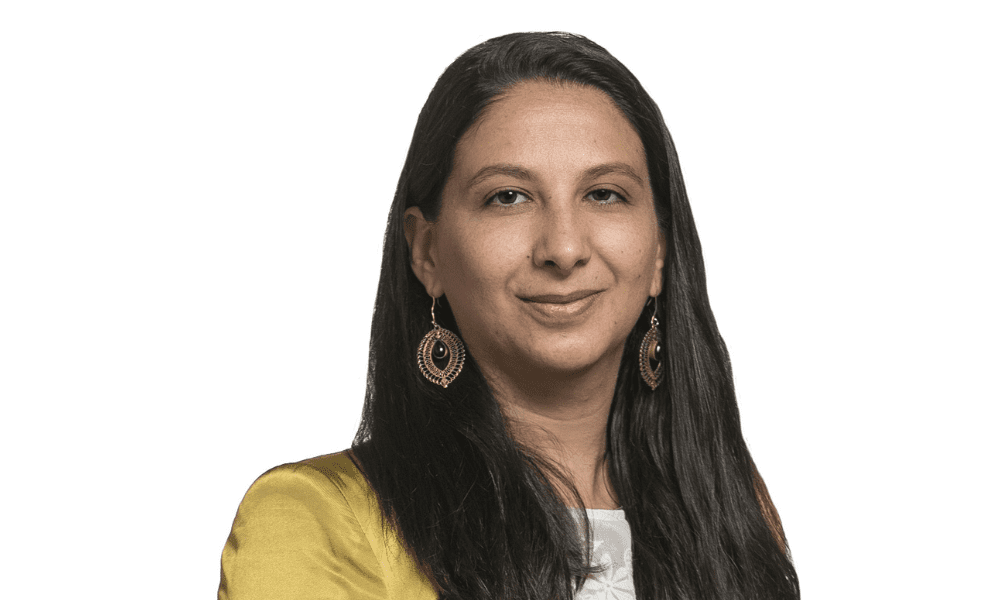Managing the cycle: A plan for sustainable, client-centred growth

Managing the cycle: A plan for sustainable, client-centred growth | Insurance Business America
Risk Management News
Managing the cycle: A plan for sustainable, client-centred growth
Assessing a critical juncture for clients, and the insurance market
Risk Management News
By
Adias Gerbaud
As Europe’s risk management community gathers in Madrid for the FERMA Forum, Adias Gerbaud (pictured), CUO for APAC & Europe, makes the case for sustainable growth in a challenging environment.
On a personal note, I very much look forward to being back in Madrid, where I started my career at AXA XL in 2007, and lived and worked in the city for over ten years. A beautiful and lively city, Madrid is a perfect place to reconnect with friends and colleagues in the risk management profession.
The FERMA Forum 2024 comes at a critical juncture for our clients, and the insurance market. The risk landscape continues to evolve at a pace, as do the needs of our clients, and the demands placed on risk managers. And I am pleased to report, the insurance industry is in robust health, with strong capital levels and a renewed appetite for growth.
The big question, then, is what do we do with this opportunity? Having built a more sustainable insurance market, do we now put our collective energies into tackling the big challenges of our time – the risks and rewards of the digital transformation, of artificial intelligence, and the green energy transition? Or do we return to past behaviour, and the market cycles of the past?
Head winds and tail winds
After several years of corrective actions, the property casualty industry is now back on an even keel. Rates across most lines are now broadly adequate, and the market has turned its focus towards growth. A stable and expanding insurance market is clearly good news for customers, who are in urgent need of solutions for today’s changing and complex landscape.
That said, challenges remain. Geopolitical risks continue to be heightened, impacting supply chains, and leading to civil unrest (riots earlier this year in the French territory of New Caledonia caused damage in excess of $1bn, and threatened Nickel supply chains). This year also saw the collapse of the Baltimore Bridge and the CrowdStrike global outage event, yet further reminders of the growing challenges of interconnectivity and interdependencies.
Extreme weather is another ever present risk: Insured losses from natural disasters in the first half of 2024 were close to $60bn, 62% above the ten year average, driven by storms and floods in the US, Germany, Brazil and the United Arab Emirates. On the Casualty side, social inflation continues to drive claims and the cost of insurance: According to reinsurer Swiss Re, social inflation increased liability claims in the US by 57% in the past decade. The EU Representative Actions Directive, growth in litigation funding and changes to the Product Liability Directive threaten to drive up the frequency and severity of litigation in Europe.
A new phase
While the insurance market is now on a much sounder footing, we are clearly entering a new phase of the cycle. Pricing has moderated over the course of 2024, and while the market remains disciplined, competition has increased.
But this cycle is unlike any other. Today, the risk landscape is changing, and demand for insurance is growing. Businesses and supply chains are undergoing a digital transformation, while climate change and the transition to Net Zero will bring about huge changes across the board. These two trends alone create huge growth opportunities for insurers that can create the insurance and risk management solutions clients need.
To meet the needs of business as they transform and navigate new and emerging risks, we need a sustainable base to build on. Insurers will need to be pragmatic, and work with customers to understand their risks, build resilience and craft solutions. We must learn the lessons of the soft market, and focus on sustainable growth based on meeting the evolving needs of our customers, and not just chase existing business.
Investing for sustainable growth
So how will AXA XL approach this challenge – of meeting clients’ needs in an evolving risk and insurance market environment? We will pursue prudent, targeted growth, that puts the client at the centre of our strategy – and supported by investments in risk consulting and technology.
Our ongoing digital transformation will generate significant efficiencies, as well as improve communication, enable real-time exchange of data, create insights, and deliver new services to clients. Automation and data analytics will free up our people in underwriting, claims and risk consulting to work as a community of experts, helping clients with their complex exposures, and building solutions.
Another key plank of our strategy is the continued expansion of our risk consulting services. We want to help our clients better understand their risks and build resilience, not just transfer them. Our commitment to partnering is also backed up by our captive and global programme capabilities, which enable us to learn alongside clients, and explore less mature risks.
We recently announced a partnership with Amazon Web Services (AWS) to develop the AXA Digital Commercial Platform, a secure risk management platform that will deliver smart insurance services that help organisations assess risk, limit exposure, and mitigate loss.
See you in Madrid!
In a more competitive insurance market, differentiation is key. AXA XL is a long-term partner for the corporate, mid-market, and specialty risk segments, with a long track record in the captive and global programme space. We have a comprehensive proposition, built on a solid balance sheet and global footprint, as well as our ongoing investment in our people, technology, and processes.
We are looking forward to hearing your thoughts and ideas at the FERMA Forum in Madrid, and working together on the challenges ahead.
Keep up with the latest news and events
Join our mailing list, it’s free!





